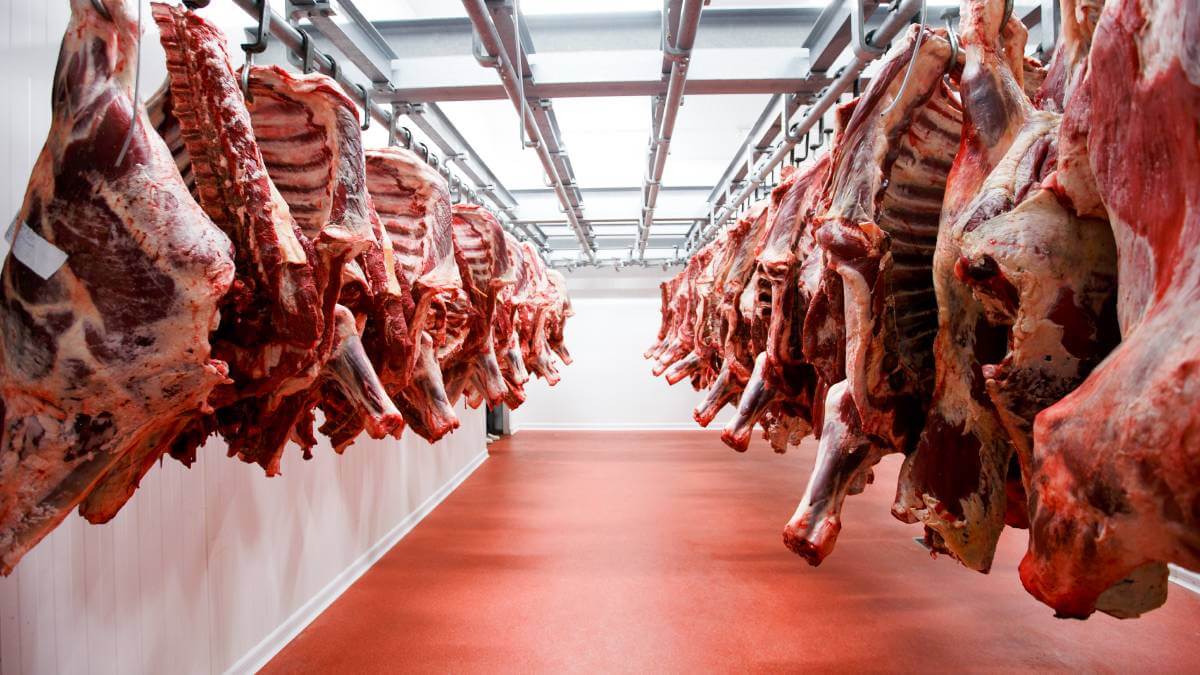
Botswana is doubling down on meat. The Botswana Meat Commission, known as BMC, is constructing a modern value addition and secondary processing facility at its Lobatse abattoir, a project expected to change how the country turns cattle into cash. With an estimated construction cost of US$17 million, this plant is designed to replace the aging ECCO Cannery that has served the industry since 1978 and to position BMC for faster growth and better export returns.
A smart play for more value and faster returns
This is not small talk. BMC projects the new plant will pay for itself quickly, with returns expected within two years of operation and an anticipated US$26 million in additional revenue every year. That kind of uplift matters for a state-owned company that sits at the center of Botswana’s livestock economy.
The plant is being delivered under a Design and Build model by China Jiangsu International Botswana, with AMA Projects as project manager. Progress is already visible on the ground, with Lobatse Town Council deputy mayor Legodile Mothibi reporting the site at 34 percent complete and a target finish date of June 2026.
Jobs now and jobs to come
Development brings people into work. During construction the project is creating roughly 135 temporary jobs. Once the doors open, BMC expects to employ between 40 and 60 permanent staff. Those numbers may not sound huge at first glance, but they represent durable livelihoods for skilled operators, line supervisors, quality assurance staff, and support workers. In a town like Lobatse, steady employment ripples out to local shops, transporters, and service providers.
Built to capture rising supply and fresh markets
The timing is strategic. BMC recently reported a 24 percent rise in cattle supply in June compared with the same month last year. The upswing follows improvements in pricing, quicker payments to producers, and closer collaboration with farmers and cooperatives. Outreach and training programs encouraging commercial cattle production and better slaughter preparation are helping too.
That rising supply needs modern capacity and market-ready processing. The new facility will allow BMC to do more value-addition locally, moving products up the chain from raw carcasses to processed, packaged goods that fetch higher prices in export markets.
New markets, higher margins
BMC’s ambitions go beyond the region. Interest has been registered by buyers in the United Arab Emirates, the Democratic Republic of Congo, Nigeria, China, and niche European outlets. Those opportunities were opened through trade expos, bilateral talks, and embassy support. Packaging, consistent quality, and reliable supply chains are essential to convert those interests into contracts.
On the home front, domestic meat consumption is rising. Industry data show cattle meat consumption and steady growth in per capita spending on meat, a trend that strengthens local demand even as BMC looks outward. Market projections suggest the value of Botswana’s meat industry could reach about US$1.01 billion by 2025, up from US$613 million in 2019, supported by a compound annual growth rate above seven percent.
Why replacing the old cannery matters
The ECCO Cannery has a long history but it is old. Replacing it is about more than brick and mortar. It is about modernizing hygiene standards, improving processing efficiency, meeting international export requirements, and reducing waste. A contemporary plant can deliver consistent product quality, longer shelf life, and the ability to offer packaged cuts or processed items that international buyers prefer.
That means higher export prices, fewer rejections at ports of entry, and better brand reputation for Botswana beef. For farmers, it can translate into stronger demand for cattle and better prices at the farm gate when BMC commits to higher quality standards.
Local ripple effects
A large secondary processing facility does more than slaughter and pack. It stimulates feed suppliers, transport logistics, cold chain services, packaging suppliers, and maintenance contractors. Small businesses supplying the plant with water treatment, waste management solutions, and spare parts stand to gain. The project will also demand skilled technicians and quality assurance personnel, pushing local training institutions to respond with relevant courses and certifications.
Risks to manage
Ambition needs discipline. To realize the projected returns and capture export markets, BMC must keep tight control over construction timelines, ensure robust biosecurity measures, and maintain high sanitary standards. Managing waste from increased processing, safeguarding animal health in the supply chain, and guaranteeing fair labor conditions will be essential for sustainability and reputation.
What success will look like
A successful plant will be visible in a few concrete ways. First, by meeting its June 2026 completion milestone and transitioning smoothly into full production. Second, by increasing BMC revenues by the projected US$26 million annually. Third, by cementing new export relationships while keeping more of the meat value chain within Botswana. And finally, by creating steady, quality employment and supporting a cluster of related businesses in Lobatse and beyond.
The bigger picture
This investment reflects a broader strategy to professionalize livestock value chains and to extract higher value from natural assets. It is part of a national narrative that seeks to translate Botswana’s cattle wealth into sustained economic benefits, not just for a few but for the communities that raise the animals, the workers who process them, and the traders who move them to market.
With rising supply, hungry new markets, and concrete investment in modern processing, the Lobatse plant could mark a turning point for Botswana’s meat sector. If managed well, the US$17 million outlay will not just replace an old cannery. It will create a firmer foundation for long term growth, better prices for producers, and a more competitive presence for Botswana beef on the global stage.
Stay updated with the latest farming tips and agriculture industry news from Africa by subscribing to our newsletter. Don’t miss out on valuable insights and updates. Follow us on Twitter, LinkedIn, and Facebook to join our farming community and stay connected with us.


















